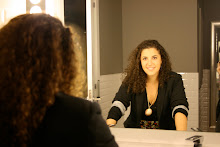Every summer gyms use “Bikini Season” also known as “summer” to people who don’t live by the water, as a marketing ploy to register new members. Shape magazine features articles on getting a bikini-body and which shape suit suits you.
As I sit writing at a café in a small residential town in LA, a mother and her young daughter, no older than 7, walk by and a woman turns around at them, yells
“You’re fat,”
Pause.
Slowly enunciating as she aggressively continues,
“You’re a fat cow.”
The mother just stares at the woman. She checks her daughters face for a reaction. I must editorially mention that neither the mother nor the daughter is fat, not even close. The woman who accosted them was clearly suffering from some kind of (and I’m no medical expert) psychological or control issues, it was definitely more than just being mean, or bitter
Along side the shock two questions come to mind.
1. Apart from obvious health reasons, why is being called fat such a heartbreaking insult? 2. What kind of messages do we send to our children when teaching moments like these arise? As it is bikini season, after all.
I didn’t hear what the mother ended up saying to her daughter, she stayed calm, seemed taken aback to be honest, but she knew it was a crucial moment. You cannot smooth over a comment like that with a generic “She’s crazy, you’re not fat”, which is merely more putting people down for no reason, especially when the mother was probably hearing the worlds aimed at herself, and her societally accrued self-doubt and confidence issues.
If she replies, “No your not”, it can come off that she thinks fat equals bad and you don’t want to be this negative thing. There are levels of fat, of health and of consciousness, of course, but I am not referring to the health implications of obesity. I am talking about what if feels like to be marginalized and treated badly based on physical appearance. This links directly with why 8-year-old American girls are already talking about dieting. Worst-case scenario, this is when body consciousness turns into eating disorders, self-deprecating behaviors and low self-esteem.
Most importantly, how do I, as someone who has always been chubby, but also always been an athlete, and never had a balanced healthy relationship with food, try to teach healthy behaviors and associations towards food to my children, so when bikini season comes around each year, they can just put on their suits and hit the beach or pool without hesitation?
To be health conscious, but not obsessed, enjoy food, but realize its fuel and not filling voids or other unsatisfying parts of life. We cannot expect our parents to be perfect, but nor do we want all their baggage and issues stock piled in our lives as young people.
One answer seen most recently on Jamie Oliver’s new show The Food Revolution is taking seriously how much influence schools have over our children. What they eat all day, not only feeds their bodies, but their minds as well. Supplying food for energy to pay attention, but not to be hyperactive. I fully support giving schools the permission to demand healthier and natural, less processed foods in their cafeterias.
To be an example as parents, as friends, as teachers, as celebrities, is also imperative. Whatever we choose to keep in the fridge at home is what our children eat when they are home. If there is no soda, we drink water, juice, and milk. Let us be a part of raising a new generation of healthy, active, proud, young people.
Suscribirse a:
Enviar comentarios (Atom)

No hay comentarios:
Publicar un comentario